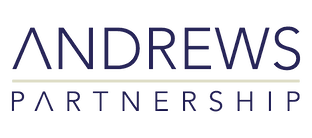CORPORATE AFFAIRS
The new realities of corporate affairs leadership in Asia
At a recent roundtable hosted by Andrews Partnership, corporate affairs leaders came together in Singapore to discuss how drastically their roles had changed in just a few years, particularly due to Covid-19 and other ‘Black Swan’ events, and what this presages for the future of the profession in our region.
After two-and-a-half years of pandemic measures, Andrews Partnership seized the opportunity during a pause in restrictions to bring our profession together again to share best practices. We gathered 12 senior corporate affairs leaders at the Artemis restaurant in downtown Singapore, and the result was an energetic debate on “The Expanding Role of the Corporate Affairs Leader,” with fascinating signposts about the direction our profession is now taking in Asia.
Post-pandemic, corporate affairs is setting the business direction more
First, the exposure and demands of Covid-19, said many, had proven to be the perfect advertisement for the capabilities of the best talent in the industry. For some, perceptions of the function among their C-Suite had shifted entirely, and most had seen growth in responsibilities, scope or budgets (as discussed previously in many of our thought-leadership papers and benchmarking reports).
More importantly, it had often meant corporate affairs taking a stronger role in the direction of the business itself. Companies in healthcare, pharma, and other “key” industries, for example, enjoyed greatly enhanced reputations from the pandemic – in some cases going from “zero to sudden hero”. We learned that many such firms, eager to capitalise, were now making reputation management a central plank of their entire corporate strategy, and they were asking corporate affairs (boosted by greater appreciation, post-Covid, for the leverage great communications could offer) to step in and help shape that new commercial strategy.
The risks of over-confidence around expertise
That heightened profile, however, has also created risks. Notably, many sensed a sudden pressure now on corporate affairs to be the company’s “reputation polymaths” – experts on everything affecting the firm’s standing, from sourcing to packaging, from health & safety to human rights, from the crisis in Ukraine to global health emergencies … all on top of being expected to deliver first-class media, employee and government engagement.
It left some of our attendees troubled, feeling that rapid expansion had opened up cracks we could now all-too-easily fall down by overcommitting; or, worse, that through bravado and giddy excitement at our new status, we would end up making irreversible decisions far outside our true areas of expertise.
The message from the group: Don’t let this sudden seat at the table seduce you into grand-standing. Stay true to your professional knowledge and defer to subject-matter experts where appropriate. You cannot make a judgement on everything that affects reputation – and nor should you to pretend to.
Convergence of corporate affairs and government affairs in Asia
But those changes had also brought certainties and professional growth. For example, Asia was perceived to have developed its own, personal model of corporate affairs now, most obviously in being a much more government-affairs-centric profession than in the US or Europe (due to APAC’s unique regulatory context, with government relations so vital to licence-to-operate and with such different compliance requirements country to country).
We learned that this has now gained extra edges post-pandemic, impacting everything from role parameters to recruitment to team structure:
- Role parameters: Government affairs has increasingly become central to the corporate affairs leadership role – a core feature rather than an accessory – with certain specific types of expertise often non-negotiable for senior positions now, such as local regulatory knowledge, local language skills, and strong contacts in government.
- Recruitment: It has helped drive a surge in companies hiring local talent from government affairs backgrounds into senior corporate affairs roles. That was certainly the case among our Singaporean attendees: Whether they were in retail, consumer, financial services or pharma, they had often come up through a government affairs route.
- Structure: Indeed, several expressed the belief that corporate affairs and government affairs were increasingly becoming a single role in the region – and that this had already been recognised within their own organisations through either formal or informal fusions of roles (or that such moves were in the pipeline).
Need to deliver on ESG commitments rapidly approaching
The centrality of government lobbying now is also changing the way the job is done, as well as shaping the specific challenges practitioners face in Asia.
An oft-cited example was ESG. Vital worldwide for building an ethical brand and safeguarding reputation, it is doubly critical in Asia, with sustainability commitments often forming a key component of licencing approvals, planning agreements or setting tax rates with local authorities. That provoked a lively discussion about potential fallout on the horizon for Asia’s businesses: Some attendees pointed to recent warnings from national governments in the region, demanding that firms start making good on their ESG commitments; that evidence of simple ‘greenwashing’ would see licences and other benefits being revoked.
The mood therefore was: “Proceed with caution.” ESG commitments are a great temptation, opening doors with consumers, investors and regulators alike, but governments are now scrutinising follow through. So while there may still be time to deliver on the full commitments – carbon-offset, for example, might have targets years away – companies will need to at least start demonstrating milestones very soon.
Internal scrutiny is increasing too
Target-tracking is also becoming the watchword internally. Once, for example, government relations was conducted on a largely informal and personal basis. Relationships were ‘owned’ by individuals, meetings happened ad hoc, and the results were largely undocumented. But as is has become more vital to business operations, attendees said that government outreach was increasingly becoming formalised within their firms; perhaps even being managed centrally by group or global.
We even heard about organisations strategising outreach to the planning-chart level, where interactions with officials had to be pre-approved and documented, with outcomes from each meeting tracked against defined metrics and published in regular reports.
While this formalisation represents a step forward for the profession – it adds further strategic discipline to APAC communications – it also requires a real change of mindset and process for many, with greater scrutiny and harder metrics around something that had often previously been run as a very soft activity. We heard that the same was increasingly happening in other areas of the corporate affairs remit in Asia now too: Historically qualitative measures of success were increasingly hardening into quantitative ones.
Asia corporate affairs begins to set its own path
In its way, however, this was simply indicative of one of the overall positive themes emerging from the roundtable: The profession in Asia is now coming into its own, as its own unique industry, and as a truly professional discipline.
For example, although corporate affairs structures in multinationals still differ, the group agreed that there is now a much greater tendency to recognise that the function should be market-led rather than HQ-led – and not just because Asia is a unique region, so global solutions rarely work here without local tailoring. Much more importantly, companies have begun to realise that APAC corporate affairs needs to be setting the communications agenda for Asia itself, based around the region’s unique challenges. And while we are still somewhat in transition to that brave new world, so attendees cited teething issues around alignment – who, for example, takes the lead if a challenge emerges in Asia that has global implications? – overall, it’s a fantastic indicator of how fast corporate affairs has matured into its own professional industry within our region.
Andrews Partnership are the reputation experts, with offices in Hong Kong and Singapore working across Asia, as the leading specialist corporate affairs, communications and investor relations executive search firm. We excel at understanding each organisation's unique challenges and appointing the right talent, who make meaningful business impact.


